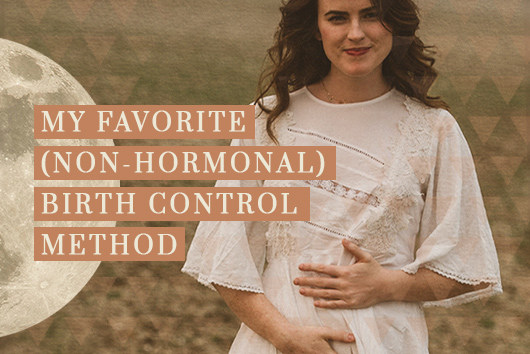Home Birth vs Hospital Birth

Usha Anandi. 21 | JUNE | 2022
I can sense the sweat starting to soak through my cotton t-shirt whenever someone asks me the question…
“Where should I give birth? At home or in a hospital?”
I always remind women that I don’t have the answer… but still, whenever I post about home birth vs. hospital birth on Instagram, I get lots of opinions on this matter.
Proponents of home birth are loud and proud about their views… and those who feel like hospital birth is the only way also throw a few strongly-worded-comments in too…
But the question still stands…. Home birth vs. hospital birth… which one is better?
While I’d love to give you a quick answer (which would mean a lot less writing for me!)… There’s no one-size-fits-all birth plan that will work for every family.
So I won’t even try to answer the question “hospital vs. home birth – which is better?”… Instead, I’ll give you some tools (and research) to determine which one might be right for you, or someone you love.
If you’re a mom-to-be, a birthworker, or a yoga teacher, and you dream of working with pregnant women in a deeper capacity, my 100hr Prenatal Yoga Teacher Training was made for you.
It’s happening in autumn, live and in-person (which means we could actually hug) from October 22nd – November 1st in Greece.
We have 19 spots left, and if you sign up by June 30th you’ll get $300 off.

And now we go, tip-toeing lightly into this edgy discussion that has the potential to touch some tender, emotional spots for many of us.
My guess is that already, before reading further, you have an opinion on homebirth vs. hospital birth.
Your lived experience is so valid… and, what worked for you (or didn’t work at all) might not be the same for everyone.
After attending hundreds of births, I can confidently say, every birth is different.
And what every Mother, baby, and family requires to have the birth of their dreams is also different.
Again, I won’t give you a definitive answer on which is better: homebirth vs. hospital birth, but I will give you a list of questions to think about and some information to consider so you can decide what’s best for you and someone you love.
*Inhales deeply*…. Here we go.
First, a few questions I ask myself (and pose to my childbirth education and birthwork clients) before we explore different birthing options:
Home Birth with a Midwife
As a Mother of a toddler who gave birth at home with a midwife myself, I walked away from my birth feeling totally empowered, in-awe, and amazed by the power of my body.
That being said, I did have an unexpected emergency complication at the end that luckily, my midwifery team was able to handle without transferring to the hospital (trained midwives for the win!).
I am also a white, able-bodied, cis-gendered woman who was able to pay out of pocket for the best midwife in my area. All of these factors, no doubt, had an impact on the level of care I accessed and received during my birth.
One thing that most people don’t realize about home birth is that if there is an emergency, you will likely transfer to the hospital.
The argument against home birth is usually that it’s unsafe. And if we have life-saving medical equipment available to us now, then why wouldn’t we use it?
But a question we don’t often consider, is what are we trading for life-saving medical equipment when we treat birth like a pathological event, rather than a natural one?
Let’s wade through some numbers and try to make sense of them, and perhaps we’ll find ourselves with an answer, or at least, some perspective.
According to an article from Harvard, the rate of U.S. cesarean delivery doubled from 1970 – 2010, though the risk of a baby dying during the course of delivery remained unchanged, and the risk of a mother’s dying rose slightly.
I was born via cesarean, and this statistic really hits home for me. Yes, cesarean sections can indeed save lives, but are they used too much?
According to the statistics, probably. The average cesarean rate of a first-time mom in 2019 with a low-risk birth (meaning they have a single, full-term baby in the head-down position) is 25.6% in the United States.
That means 1 in 4 who walk into the hospital in the U.S. will walk out having had a cesarean.
But it doesn’t stop here, in the U.S. 86.2% of women with a history of previous cesarean birth will have a repeat C-section, often due to regulations that don’t allow women with a history of cesarean to give birth vaginally through a V.B.A.C. (vaginal birth after cesarean).
My favorite aspects of homebirth:
- Mothers who give birth at home may feel more comfortable or at-home in their environment, which can positively impact their birth experience.
- Midwifery care can vary from midwife to midwife, but usually offers a minimum of 6 – 8 weeks of postpartum care, which includes care not just for the newborn, but emotional support for the Mother as well.
- Midwives often call themselves experts in “normal” birth, meaning they work with mainly complication-free, healthy pregnancies (depending on the midwife and their training)… this can sometimes mean that they approach birth in a more relaxed way, and often do what they can to support an intervention-free experience.
My least favorite aspects of homebirth:
- No emergency medical equipment. If this makes you feel nervous or feels significant to you but you still want to try for a homebirth, check out the hospitals closest to you and how long it would take to transfer there if needed.
- Experience may vary greatly depending on which midwife you choose. Not all midwives are created equal, just like no two Doctors are the same. In the U.S. for example, we don’t have enough trained midwives, especially in rural areas.
This means the midwives that are available are often overworked, tired, and run-down (can you imagine staying up for 24- 48 hours a handful of times every month… and then offering medical care on top of that?!).
Depending on the midwife’s training, birth approach, and their own unintegrated birth trauma, midwives can support or hinder the physiological birth process.
Questions to ask yourself about homebirth:
If I don’t think home birth is safe, where is this belief coming from?
Is there an experience in your lifetime, the life of an ancestor, or perhaps a collective story that you may be tuning into? If you don’t feel safe with a homebirth, that is valid and absolutely something to note. And, if you’re curious, some inner exploration where that feeling is coming from and whether or not you’d like to make a decision based on it.
Are there experienced midwives in my area?
Finding a midwife that you align with in values, energy, and approach is absolutely key. When I interviewed midwives, there were many in my area that I felt like I might align with.
On paper, it seemed like there were two or three that I could have worked with, but after meeting them and following my gut, I knew exactly who I wanted to work with. Be open to any guidance you receive from your body, your intuition, and your baby when choosing your midwife… Who would you want to spend time with during your most vulnerable, powerful, open time?
Below are some of the questions that I asked my midwife at our first meeting when I was considering her for my homebirth:
- What is your perspective of your role as a midwife?
- Do you practice cervical checks, if so, how often?
- If I don’t want cervical checks at all, are you okay with that?
- Do you run blood tests, diagnostics? If I want to opt out of it, are you okay with that?
- What is your opinion on ultrasounds, if I want to opt out of them, are you okay with that?
- What is your relationship with the hospitals here? If I have to transfer, would you come with me?
- What is your transfer rate to the hospital?
- Do you work alone or with a partner? If you work with a partner, can I meet them before my birth?
- What kind of postpartum care do you offer? How long after my birth will our relationship continue?
Does my insurance cover a homebirth midwife, and if not, do I have the funds to pay out of pocket for one?
Not all midwives have the same level of education and experience. Depending on where you live, your insurance (is it private insurance or government insurance), and the midwife, you may have to pay out of pocket for your care.
If this isn’t possible for you, don’t give up.
Some midwives offer payment plans, and I have seen many of my students pay out of pocket for their midwives with support of a GoFundMe profile and the financial help of their community.
When I think about giving birth at home, what feelings arise in my body?
The best place for you to give birth is the place where you feel the safest to do so. If you think about bringing your baby into the world at home, surrounded by people you’ve chosen, in an environment that is familiar, what comes up?
Hospital Birth
Hospital births do offer benefits, which we’ll explore more in detail below. But before I get into this, I will say that not all hospitals are the same…
That’s why it’s crucial to do research and actually go to the hospitals in your area to meet the providers and see the space where you may give birth before you’re at the place where you have to choose.
We’ve already shared some of the statistics from hospital births in the U.S. and in the interest of making this post blog sized instead of book sized, I’ll try to keep it short.
I will reiterate that if you do desire to have a hospital birth, go to the hospital beforehand.
Each hospital has different Cesarean rates, different technology, NICU’s, and likely different philosophies on birth. If your pregnancy has been classified as a “high-risk” pregnancy, you have the choice to give birth in a hospital.
Depending on the hospital you choose, there may also be CNMs available, which are certified nurse midwives. Although the name “midwife” is used here, it’s important to note that nurse midwives are often more like obstetrical practitioners, meaning that they may use forceps, episiotomies, and believe in interventions.
This is a broad generalization, but in my practice as a birthworker, I have seen a big difference between the approach of CPMs (certified professional midwives or direct entry midwives) who attend home births and CNMs.
My favorite aspects of hospital birth:
- Emergency medical equipment in case of need.
- Many workers on staff and rotating in shifts, there can be some benefit to having many hands to help you recover and support you in the days after your birth.
My least favorite aspects of hospital birth:
- Even if you choose one Doctor and like them from the hospital you’re at, depending on the day, and how the shifts at the hospital work, you may not be attended by the Doctor you’ve chosen. That’s why it’s important to meet ALL of the people who may attend you in your birth, to see if you feel comfortable with all of them, rather than just one.
- Hospitals are based in obstetrical models of practice which generally treats birth as pathology, rather than a natural event, and often uses interventions.
- Depending on the Doctor and the hospital, the priority of the Motherbaby bond, delayed cord clamping, and skin-to-skin may be lessened.
- Less control of the birth environment than at home. Read below for more info on this point.
Questions to ask the hospital:
How much control will I have of my birth space?
It’s important to ask the hospital where you are whether or not you can bring candles, put on music, bring your own food, choose delayed cord clamping if you want it, request that the baby be put directly on your bare chest after birth for skin-to-skin, etc…
It IS possible to set up your birth space how you want it, even in a hospital. If you don’t ask and advocate for yourself, they likely won’t even offer it.
The time to ask these questions is BEFORE you’re giving birth. Likely from the practitioner’s verbal and non-verbal response, you’ll get a good idea as to whether or not they’re onboard with helping you create the space you want to birth your baby.
What is your Cesarean rate? What is your perspective on interventions?
Will they induce you after 40 weeks (even when it’s not medically indicated and completely normal to go up to 42 – 43 weeks of gestation?)
Are episiotomies routinely practiced? Do they use forceps regularly?
These are just a few important examples of questions to get answered before you agree to work with a hospital. Making sure they’re in alignment with you and what you desire for your birth before you’re in the position of really needing to choose a hospital is vital as it will balance the power dynamic.
Note: This is where bringing on a doula or birthworker that you love and trust to help advocate for you can be a really powerful and supportive decision for many.
What is the postpartum care offered?
How long are you able to stay in the hospital after giving birth? Do they offer routine checkups on baby AND mom after the birth? If so, for how long? For those checkups, do they come to you (unlikely) or do you have to leave your home and go to the hospital?
Do they support physiologic breastfeeding?
Not all hospitals are on board with breastfeeding, and not all hospitals understand how to set up families for success when it comes to breastfeeding. Here are some questions to ask:
- Do they facilitate an environment where skin-to-skin immediately after birth is possible?
- Do they allow the baby to suckle and find its way to the breast on its own.
- If your milk is delayed, will they supplement with formula or wait until your milk has come in?
- If there are breastfeeding challenges, do they have lactation consultants on staff?
As you can see, there is a lot to consider when we bring up home birth vs. hospital birth. And just like most conversations, there is way more nuance to this conversation than most offer space for.
Ultimately, each family will have to choose where they would like to give birth. And sometimes, depending on the situation, there might not be much room for choice.
That’s why judgment, projection, and fear-mongering is never helpful when layered on top of this already emotional conversation.
Here’s what I know to be true about birth after being blessed to witness so many babies come earthside…
Each Mother has an incredible wisdom and intuition that will guide them throughout their birth. And the best time to tap into their power and start developing a relationship with it, is before the first contractions arrive.
In my 100hr Prenatal Yoga Teacher Training, we explore how to set up Mothers with the tools, practices, and supportive space to strengthen their relationship with their babies, their bodies, and their innate power.
Enrollment is open and if you sign up before June 30th, you’ll get $300 off.




